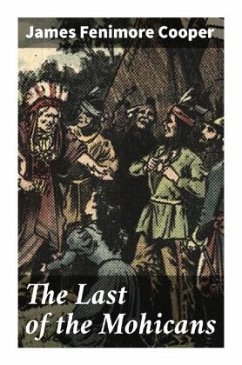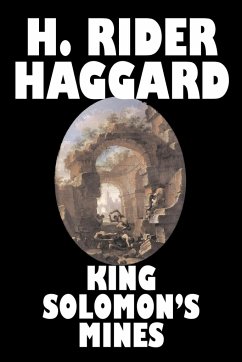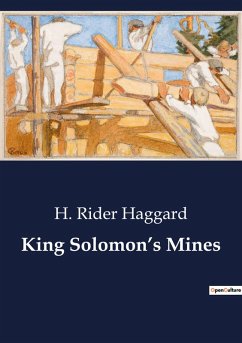
King Solomon's Mines
Versandkostenfrei!
Versandfertig in 6-10 Tagen
8,99 €
inkl. MwSt.

PAYBACK Punkte
4 °P sammeln!
In H. Rider Haggard's seminal work, "King Solomon's Mines," the reader embarks on a gripping adventure that intertwines the quest for treasure with explorations of imperialism and the ethical dilemmas of colonial exploration. Set in the uncharted territories of Africa, the narrative captures the spirit of Victorian adventure literature, rich with vivid descriptions and dynamic characterizations. Haggard's blending of factual geography with mythological elements creates a vibrant tableau that challenges the perceptions of race and civilization, providing a nuanced commentary on the age's imperi...
In H. Rider Haggard's seminal work, "King Solomon's Mines," the reader embarks on a gripping adventure that intertwines the quest for treasure with explorations of imperialism and the ethical dilemmas of colonial exploration. Set in the uncharted territories of Africa, the narrative captures the spirit of Victorian adventure literature, rich with vivid descriptions and dynamic characterizations. Haggard's blending of factual geography with mythological elements creates a vibrant tableau that challenges the perceptions of race and civilization, providing a nuanced commentary on the age's imperial ideologies. Haggard, a notable figure of Victorian literature, draws upon his own experiences in Africa, having worked as a farmer and an explorer in the late 19th century. The socio-political climate of his time, marked by a fascination with Africa and a relentless pursuit of wealth and knowledge, undoubtedly influenced his writing. His background fostered a deep appreciation for adventure, which permeates through every page of this book, making it a personal and societal exploration melded into one narrative. "King Solomon's Mines" is an essential read for those intrigued by the complexities of exploration narratives and the undercurrents of colonialism. Haggard's masterful storytelling not only entertains but also provokes thought, inviting readers to critically engage with the themes of ambition, morality, and the consequences of imperialism. This is not just a tale of treasure; it is a profound inquiry into the human spirit and the age of exploration.












